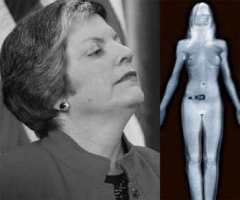By Jerry Markon and Stephanie McCrummen
A federal investigation of a controversial Arizona sheriff known for tough immigration enforcement has intensified in recent days, escalating the conflict between the Obama administration and officials in the border state.

Sheriff Joe Arpaio, Maricopa County
Justice Department officials in Washington have issued a rare threat to sue Maricopa County Sheriff Joe Arpaio if he does not cooperate with their investigation of whether he discriminates against Hispanics. The civil rights inquiry is one of two that target the man who calls himself “America’s toughest sheriff.” A federal grand jury in Phoenix is examining whether Arpaio has used his power to investigate and intimidate political opponents and whether his office misappropriated government money, sources said.
The standoff comes just weeks after the Justice Department sued Arizona and Gov. Jan Brewer (R) because of the state’s new immigration law, heightening tensions over the issue ahead of November’s midterm elections. The renewed debate has focused attention on Arpaio, a former D.C. police officer who runs a 3,800-employee department, and a state at the epicenter of the controversy over the nation’s estimated 12 million illegal immigrants.
(Photos: How the immigration law is being enforced in Benson, Arizona)
Once seen as a quirky figure who has inmates dress in pink underwear and forces them to work on chain gangs, Arpaio has in recent years become a kind of folk hero to those who favor his heavily publicized “crime sweeps,” conducted mostly in Hispanic neighborhoods. But civil rights groups accuse the 78-year-old lawman of racial profiling. And some Maricopa County officials say Arpaio has begun meritless corruption investigations of officials who have criticized his policies or opposed his requests.
Those allegations are at the core of the Justice Department investigations, according to documents, lawyers familiar with the inquiries, and people who have been questioned by FBI agents and the grand jury.
(Arizona: We’re not changing immigration law)
The investigations reflect the tangled politics surrounding the immigration debate. The criminal probe is led by Dennis K. Burke, the U.S. attorney in Phoenix who was a top aide to Homeland Security Secretary Janet Napolitano.
Two of Arpaio’s attorneys, Robert N. Driscoll and Asheesh Agarwal, were officials in the Justice Department’s civil rights division in the George W. Bush administration. They denied that the sheriff, a Republican who has been reelected four times since 1992, has been uncooperative or has engaged in racial profiling, misusing money or targeting political enemies.
“The sheriff’s office is cooperating fully with the grand jury investigation and has complete confidence that the inquiry will clear it of any wrongdoing,” Agarwal said. “The office has always fulfilled its responsibilities truthfully, honorably, and in full compliance with state and federal law.”
Arpaio’s attorneys contend that the investigations are politically motivated, citing a news conference in March at which Attorney General Eric H. Holder Jr. was quoted as saying he expects the inquiries to “produce results.”
“While we have no quarrel with the assistant U.S. attorneys handling the investigation, the attorney general’s comments appear to violate federal regulations, departmental policy and state ethical rules designed to ensure the fairness of criminal investigations,” Agarwal said.
(More: Chat with Sheriff Joe Arpaio)
Brewer and her supporters have also asserted that the Justice Department was politically motivated in its lawsuit over the state law, which authorizes, among other things, police officers to ask about the status of people suspected of being in the country illegally. A federal judge last month stopped the most controversial sections of the legislation from taking effect.
Justice Department officials denied any political considerations, saying the investigations and the lawsuit are based on the facts and the law. They declined to comment on details of the Arpaio inquiries.
The civil rights division’s investigation began in March 2009 and focuses on whether Arpaio’s department engaged in “discriminatory police practices and unconstitutional searches and seizures,” along with allegations that his jail discriminated against Hispanic inmates, according to letters the division sent to Arpaio. A complaint to the Justice Department said that even bilingual jail guards are required to speak to inmates only in English and that the rule could endanger prisoners’ medical care. The jail was also accused of forcing Hispanic visitors to fill out a “citizenship check” form, the letters said.
Lawyers in the division have repeatedly interviewed Phoenix area human rights leaders about Arpaio’s immigration sweeps, and local “cop watch” groups have turned over hours of video footage of the sweeps to investigators.
“Their questions are in regards to racial profiling, questions about what are the practices when people get stopped,” said Salvador Reza, an organizer with the Puente human rights movement who has met with Justice Department lawyers. He said the lawyers have asked about the treatment of inmates in Arpaio’s jail.
In an Aug. 3 letter to Arpaio’s attorneys, Thomas E. Perez, assistant attorney general for the civil rights division, said the sheriff’s office had declined repeated requests to turn over documents and meet with investigators. Without cooperation by Tuesday, the letter said, the government would file suit “to compel access to the requested documents, facilities and personnel.”
In his Aug. 5 reply, Driscoll accused the Justice Department of “a desperate attempt” to compel cooperation and of “a public relations campaign against Sheriff Arpaio.” He added: “DOJ cannot require the reproduction of millions of pages of documents so DOJ can ‘see what it can find.’ “
Arpaio’s resistance is highly unusual: Justice Department officials said the threat of such a lawsuit is rare. They added that they plan to meet with the sheriff’s attorneys next week in a last-ditch effort to forestall litigation. If the department files a broader civil lawsuit, it could result in the department terminating the several million dollars in grants to Arpaio’s office each year or in a judge’s order forcing him to change his policies.
On a separate track, the grand jury investigation has been underway since at least January. Lawyers familiar with the inquiry and witnesses said it is focused on allegations that as Arpaio has fought with the county board over his budget and other issues, he and his deputies have retaliated by carrying out at least seven criminal investigations of county officials alleging corruption, fraud and other crimes.
Some legal experts say it could be difficult for such allegations to result in criminal charges. “I don’t know what a charge would be,” said Peter Zeidenberg, a former Justice Department public corruption prosecutor. “We all would agree that being abusive is wrong, but I’m not aware of any federal statute that would fit.”
In one case, Arpaio leveled 40 corruption-related charges against a county supervisor who had spoken out against his policies, all of which a judge dismissed. In another, the sheriff’s allies in the county attorney’s office filed more than 100 criminal counts against another supervisor for improperly filling out required financial disclosure forms. Several days after a judge dismissed most of those, Arpaio’s deputies arrested the supervisor in a parking garage and walked him before TV cameras to jail, announcing more than 100 new charges, which a judge dismissed. (Some of the original charges remain on appeal.)
“They’ll never stop,” said Deputy County Manager Sandi Wilson, who was named in one of Arpaio’s investigations. Wilson testified before the grand jury and has spoken to FBI investigators more than a dozen times, as recently as last week. “They don’t care who tells them to stop.”
County Manager David Smith said grand jurors also questioned him about deputies’ trips to conferences and training missions in Las Vegas, Honduras and other destinations, where he said they often stayed at “boutique” hotels. He said prosecutors were focusing on “issues that might involve the crime of extortion over the county budget, misappropriation of funds and abuse of police power.”





